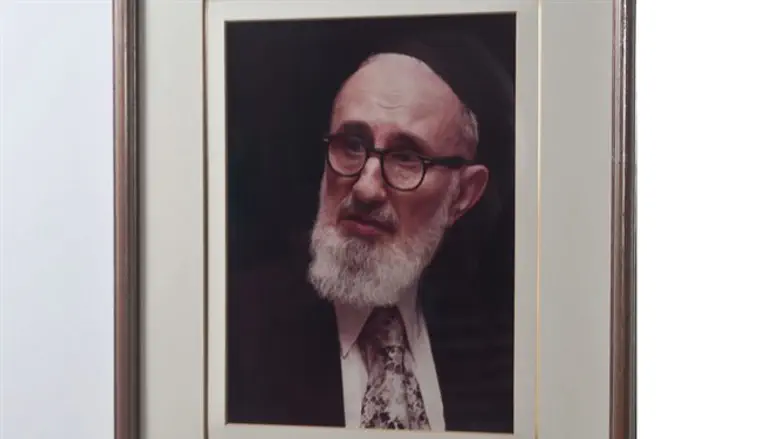
"Pluralism," an idol of the Reform and Conservative movements, is sometimes used even by self-styled "Modern" Orthodox Jews, those originally called "Open" Orthodox..
Some members of the neo-Orthodox - or should it be neo-Conservative - camp try to adorn their pluralism with the respectability of a great name, such as the eminent Talmudic scholar and Torah philosopher Rabbi Joseph B. Soloveitchik (z"l). They associate their pluralism with his profound discussion of the concept in The Halakhic Mind. But when R. Soloveitchik uses that concept he means cognitive pluralism, not religious or moral pluralism. Cognitive pluralism means that the human mind can have objective knowledge of different domains of reality--not only of physical but of nonphysical reality.
Objectivity is not limited to science or the scientist. Indeed, as a halakhist who mastered science and philosophy, R. Soloveitchik speaks with authority when he states that "objectification reaches its highest expression in the Halakha."
The ultimate aim of the halakhist is truth. But as R. Soloveitchik pointed out in a public lecture, "The truth in Talmud Torah can only be attained through singular [not pluralist] thinking and understanding." It cannot be achieved by superimposing external values on the Halakha--values which change with time and place. "The truth is attained from within, in accord with the methodology given by Moses and passed on from generation to generation."
This methodology, says R. Soloveitchik, is as up-to-date as any employed by the mathematical sciences. Only one who has mastered the methodology of the Halakha can comprehend the theoretical dimensions of Torah jurisprudence. And only such a person is qualified to apply axiomatic principles of the Halakha to the changing conditions of society.
In the lecture from which I am now quoting, R. Soloveitchik declared that "It is ridiculous to say ... I have discovered an approach to the study of the Torah which is completely new. One must join the ranks of the Gedolei HaTorah, Chazal, the Rishonim, Achronim, and not judge chukim and mishpatimin terms of the secular system of values. Such an attempt, be it [by way of] historical relativism, psychologism, or utilitarianism undermines the very foundation of Torah and mesorah. And it leads eventually to the most tragic consequences of assimilation and nihilism--no matter how good the intentions of the person who suggested it."
A pluralistic approach to the Halakha is as absurd as a pluralistic approach to ordinary logic. Those who point to controversies in the tradition as evidence of pluralism do not understand the theoretical framework and pedagogical function of those controversies--controversies which are truth-oriented, wholly logical, and disinterested. These pluralists simply impose their own personal preferences on the Halakha..
Their approach reverses the true order of things elucidated in another of R. Soloveitchik's books, HalakhicMan. Thus, instead of changing themselves and their circumstances in accordance with the rational principles of the Halakha, they change the Halakha to suit their own preconceptions and personal interests. Their pluralism is inherently subjective and non-rational, and leads to assimilation and nihilism.
To reject this pluralism is not to reject the mutually enhancing diversity which makes intellectual and social life stimulating and potentially progressive. But once the differences among the members of a community become more significant than what they have in common, they cease to be a community.
Any community whose diverse opinions and interests are not constrained by generally recognized laws of morality is doomed to disintegration. Consider the non-rational pluralism found on the campuses of multicultural universities, where cheating and homosexuality are deemed as legitimate as honesty and heterosexuality. This nihilism and neopaganism is the end product of the subjectivism and relativism that dominate secular universities and which even infect students in Jewish institutions of higher education.
Non-rational or moral pluralism is now being fostered by certain self-called "Modern" Orthodox Jews yielding to the blandishments of the secular society, which relegates religion to a purely private matter. "This reduction of religion into some ... subjective current," writes R. Soloveitchik, "is absolutely perilous. It frees every dark passion and every animal impulse in man. Indeed, it is of greater urgency for religion to cultivate objectivity than perhaps any other branch of human culture. If G-d is not the source of the most objective norm, faith in Him is nothing but an empty phrase."
Summing up: R. Soloveitchik categorically rejects not only the pluralism of "religious liberalism," but also the pragmatist approach to the Halakha espoused by certain Open Orthodox (now self-calling themselves Modern Orthodox) rabbis who contend that the Halakha "is subordinated to the omnipotent authority of time and change," that "it is impossible therefore to consider any set of religious norms and dogmas as immutable." R. Soloveitchik refutes this historical relativism and shows that, far from being "modern," it is based on an obsolete epistemology (i.e., theory of knowledge). In other words, Modern Orthodoxy is neither modern nor Orthodox.
It thus behooves those Open Orthodox Jews who have decided to call themselves Modern Orthodox examine their views in the light of R. Soloveitchik's philosophical analysis of pluralism and of liberal Judaism in The Halakhic Mind.☼